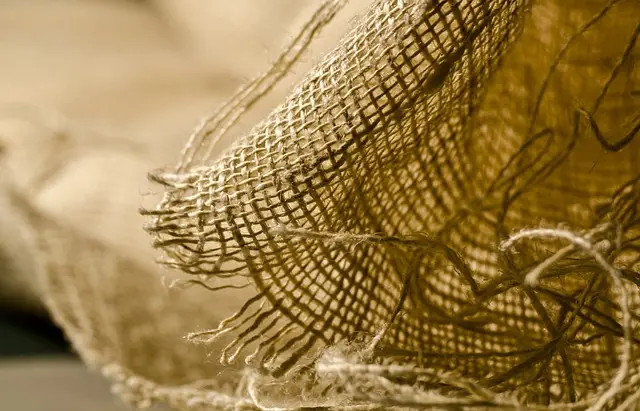Athletes looking to enhance their performance naturally through herbal supplements can benefit from remedies like Rhodiola rosea and ginseng for improved stamina and mental acuity. These adaptogens aid in muscle recovery and endurance, crucial for precision sports. Additionally, anti-inflammatory herbs such as turmeric and ginger are advantageous post-exercise to reduce soreness and expedite healing. For those transitioning from opiate dependence, herbal remedies like milk thistle, St. John's wort, and kudzu can mitigate withdrawal symptoms as part of a holistic recovery program. It's imperative for athletes to consult professionals when incorporating these natural supplements into their regimen due to the importance of safety, efficacy, and potential interactions with other substances. A balanced diet, rigorous training, sufficient rest, and careful consideration of herbal remedies form a comprehensive approach that supports both recovery from opiate withdrawal and peak athletic performance. Herbal remedies offer a safe alternative for managing the challenges of opiate withdrawal in athletes aiming to return to top conditioning, provided they are used responsibly under professional oversight.
Exploring the multifaceted realm of athletic performance, this article delves into the integration of natural supplements and herbal remedies as pivotal tools for attaining peak physical conditioning. By examining their roles in optimizing endurance, facilitating recovery, and providing safe and effective support during the transition from opiate withdrawal to high-level athletic performance, we uncover a holistic approach that resonates with the contemporary athlete’s pursuit of excellence. Join us as we explore the intersection where traditional herbal wisdom meets modern sports science, offering insights into a healthier, more sustainable athletic journey.
- Optimizing Athletic Performance with Natural Supplements: A Holistic Approach to Peak Physical Conditioning
- The Role of Herbal Remedies in Enhancing Endurance and Recovery in Athletes
- Safe and Effective Herbal Support for Athletes Transitioning from Opiate Withdrawal to Peak Performance
Optimizing Athletic Performance with Natural Supplements: A Holistic Approach to Peak Physical Conditioning

Athletes striving for peak physical conditioning often seek out natural methods to enhance their performance while maintaining a holistic approach to health and wellness. A key strategy in this pursuit involves the use of herbal supplements, which can offer a range of benefits without the potential side effects associated with synthetic alternatives. For instance, certain herbal remedies have been found to support muscle recovery and enhance endurance. These natural compounds work by modulating inflammation, improving oxygen delivery, and facilitating the repair of muscle tissues post-exercise. Additionally, they can aid in mental clarity and focus, which are crucial for athletes who require precision and skill in their performance.
Incorporating herbal supplements into an athletic regimen requires careful consideration of the individual’s specific needs, as well as the potential interactions with other dietary components and medications. Rhodiola rosea, for example, is an adaptogen that can help the body manage stress and fatigue, potentially improving training outcomes and overall vitality. Ginseng is another herbal remedy that has been traditionally used to boost stamina and enhance physical performance. It’s important to select high-quality supplements and to follow dosage guidelines to maximize efficacy and safety. By combining these natural enhancers with a balanced diet, regular training, and adequate rest, athletes can pursue their goal of achieving peak physical conditioning in a manner that aligns with holistic health principles.
The Role of Herbal Remedies in Enhancing Endurance and Recovery in Athletes

Herbal remedies have long been a part of athletic performance support, offering natural alternatives to enhance endurance and facilitate recovery. For instance, adaptogens such as ginseng and rhodiola are renowned for their ability to improve mental and physical stamina, thereby extending the endurance capabilities of athletes. These herbs help the body manage stress and maintain energy levels during prolonged activities, which is crucial for high-performance sports where sustained effort over time is necessary. Additionally, anti-inflammatory agents like turmeric and ginger play a significant role post-exercise, reducing muscle soreness and accelerating the recovery process. This is particularly beneficial for athletes who engage in repetitive motion or high-impact sports that can lead to musculoskeletal strain. Furthermore, certain herbs like ashwagandha have been shown to improve sleep quality and reduce cortisol levels, which aids in recovery by allowing the body to repair and rejuvenate more effectively. The integration of these herbal remedies into an athlete’s regimen can complement their training program and nutritional intake, leading to enhanced performance and a healthier athletic career.
Incorporating herbal remedies into an athletic training program should be done with care, as the efficacy and safety can vary based on individual physiology and the specific sport or activity. It’s important for athletes to consult with healthcare professionals before introducing new supplements to their routine, ensuring that these natural aids complement their overall health strategy without interfering with any medications or performance-enhancing substances they may be using. The right combination of herbal remedies can be a powerful tool in an athlete’s arsenal, contributing to better endurance and recovery, which are essential for peak physical conditioning.
Safe and Effective Herbal Support for Athletes Transitioning from Opiate Withdrawal to Peak Performance

Athletes striving for peak physical conditioning must navigate a myriad of challenges, one of which is safely transitioning from opiate withdrawal to optimal performance. The journey from opiate dependence to athletic excellence is fraught with complex physiological and psychological hurdles that require careful management. Herbal remedies can play a pivotal role in this process, offering a natural alternative to support recovery while promoting the well-being necessary for athletic endeavors. For instance, certain herbs have been traditionally used to alleviate withdrawal symptoms and support detoxification processes. These include milk thistle, which supports liver health; St. John’s wort, known for its mood-stabilizing properties; and kudzu, an ancient remedy that has been linked to the reduction of cravings and withdrawal symptoms associated with opiate addiction.
When integrating herbal support into a training regimen, it is crucial to consult with healthcare professionals, as these natural remedies can still interact with other medications or affect performance. Additionally, athletes in transition should focus on a comprehensive recovery program that includes proper nutrition, hydration, and evidence-based training techniques alongside the use of herbal remedies for opiate withdrawal. This holistic approach ensures that the individual’s return to peak physical conditioning is both safe and effective, facilitating a sustainable performance enhancement in the athletic domain.
In conclusion, achieving peak physical conditioning is a multifaceted endeavor that extends beyond mere training regimens and dietary management. The integration of natural supplements and herbal remedies can play a pivotal role in optimizing athletic performance, enhancing endurance, and facilitating effective recovery strategies. Particularly noteworthy is the potential for these holistic approaches to support athletes during the delicate transition from opiate withdrawal to resuming their peak performance levels, as highlighted by recent research on herbal remedies for opiate withdrawal. By adopting a comprehensive and informed approach, athletes can leverage these natural solutions to enhance their overall well-being and athletic capabilities, ultimately achieving their full potential in their respective sports.






